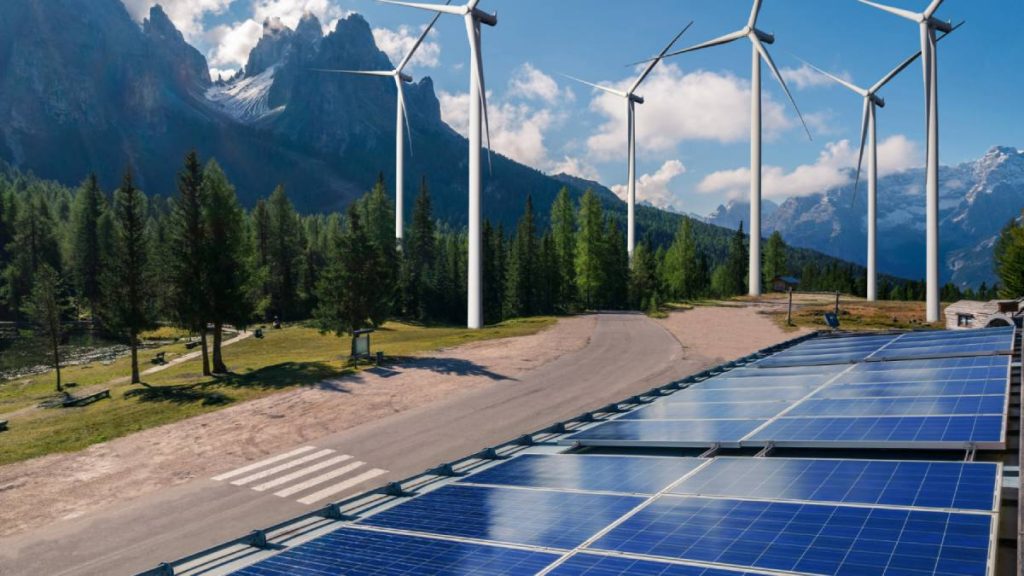The rapid growth of renewable energy is revolutionizing global markets, offering a cleaner, more sustainable alternative to traditional fossil fuels. As nations push toward carbon neutrality, the renewable energy sector is attracting massive investments, driving economic growth, and reshaping industries worldwide. This energy transformation marks a pivotal shift in the global economy.
The Growth of Renewable Energy
Renewable energy sources, such as solar, wind, and hydroelectric power, are experiencing unprecedented growth. Advancements in technology have made these energy sources more efficient and cost-effective. In 2025, renewable energy accounts for a significant portion of global energy production, surpassing coal and oil in many regions.
This shift is fueled by government incentives, private investments, and growing public awareness of climate change.
Key Drivers of the Renewable Energy Boom
The transition to renewable energy is driven by several factors. Governments are implementing policies to reduce greenhouse gas emissions, such as subsidies for clean energy projects and penalties for polluters. Meanwhile, consumer demand for sustainable products and services is encouraging businesses to adopt greener practices.
Technological innovation, including advancements in battery storage and grid integration, has also accelerated the adoption of renewables.
The Economic Benefits of Renewable Energy
The rise of renewables is creating millions of jobs worldwide, particularly in manufacturing, installation, and maintenance. Regions investing heavily in renewable infrastructure are experiencing economic revitalization, with rural areas benefiting from new opportunities in wind and solar farms.
Furthermore, renewable energy reduces dependency on volatile fossil fuel markets, stabilizing energy prices and enhancing energy security.
Renewables and the Investment Landscape
The renewable energy boom is reshaping the investment landscape. Green bonds, clean energy ETFs, and sustainability-focused portfolios are attracting investors seeking long-term growth. Companies in the renewable sector, such as Tesla, NextEra Energy, and Ørsted, have seen significant market value increases.
This trend underscores the growing recognition of renewables as a profitable and socially responsible investment.
Challenges in the Transition
Despite its promise, the shift to renewable energy faces challenges. Intermittent energy production from solar and wind requires robust storage solutions, while transitioning existing infrastructure to support renewables involves significant costs. In developing countries, limited access to financing and technology hinders widespread adoption.
Addressing these challenges requires collaboration between governments, businesses, and research institutions.
The Future of Renewable Energy
The future of renewables is bright, with continued innovation paving the way for greater efficiency and accessibility. Emerging technologies like hydrogen fuel cells, floating solar farms, and advanced battery systems hold the potential to overcome current limitations. By 2030, renewable energy is expected to dominate global energy markets, driving progress toward a sustainable future.
International cooperation and sustained investment will be critical to realizing the full potential of renewable energy.
Conclusion
The renewable energy boom represents a monumental shift in global markets, offering economic, environmental, and social benefits. As nations and industries embrace clean energy, the transition promises to redefine economies and combat climate change. By prioritizing renewables, the world can build a more sustainable, prosperous future for generations to come.
| Energy Source | Key Benefits |
|---|---|
| Solar Energy | Abundant, cost-effective, and suitable for diverse applications. |
| Wind Energy | High efficiency and scalability, ideal for rural areas. |
| Hydropower | Reliable and capable of producing large-scale energy output. |
| Geothermal Energy | Sustainable and consistent, with minimal environmental impact. |
| Hydrogen Fuel | Versatile and a potential solution for storage and transport challenges. |




